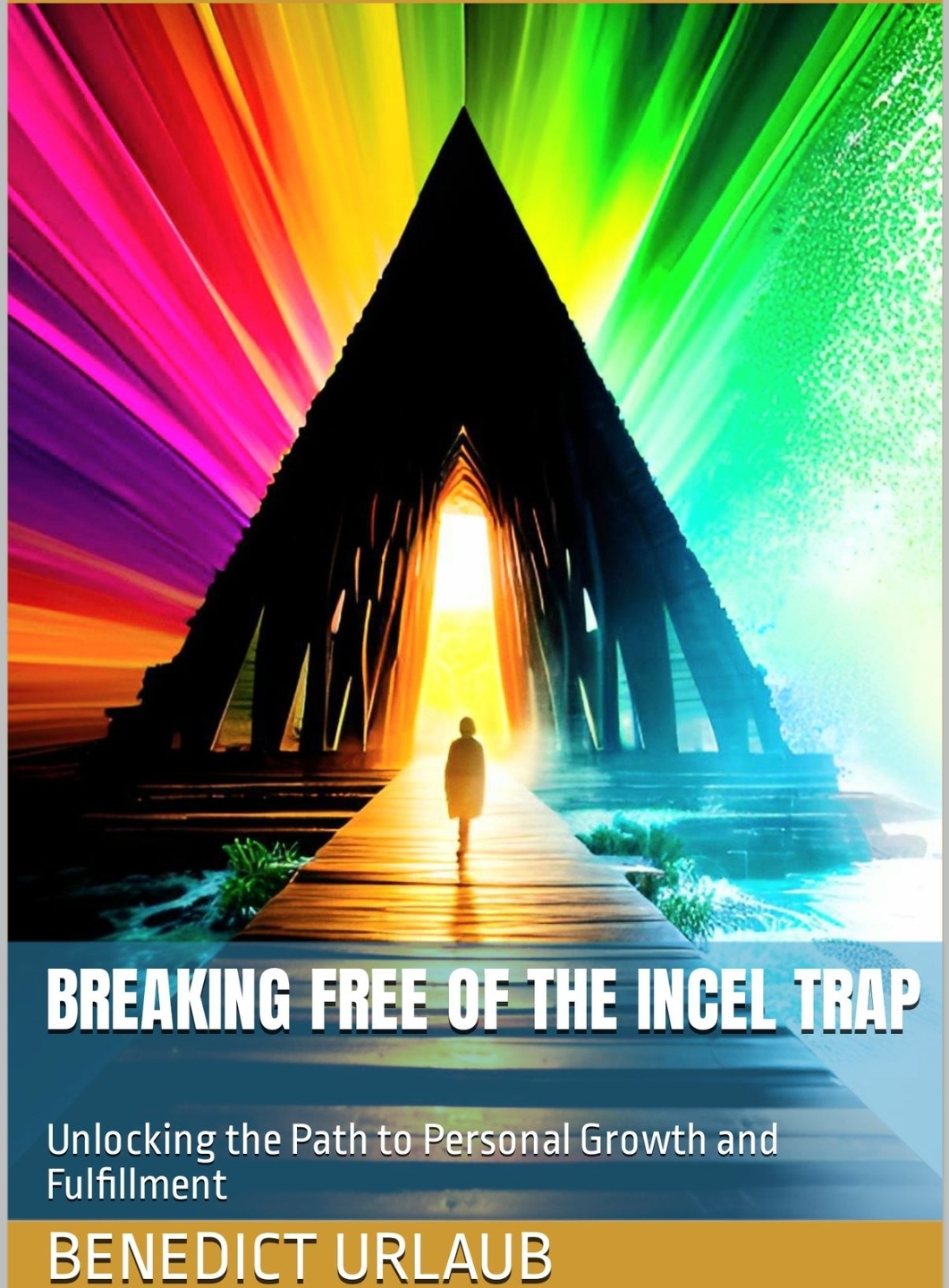
In a world where connection and companionship are highly valued, individuals who identify as incels often find themselves trapped in a cycle of frustration, loneliness, and self-doubt. But what if there was a way to break free from this trap? "Breaking Free of the Incel Trap: Unlocking the Path to Personal Growth and Fulfillment" is a compassionate and empowering guidebook designed to help individuals navigate the challenges of incel culture, discover their self-worth, and forge a path towards a more fulfilling life.
Written with empathy and understanding, this book goes beyond the surface-level narratives surrounding incels and delves into the underlying psychological, social, and emotional factors that contribute to their experiences. It offers a comprehensive exploration of the complex issues faced by incels and provides practical strategies and insights to help them redefine their identities, cultivate confidence, and develop meaningful connections.
Throughout the book, readers will embark on a transformative journey of self-discovery, guided by thought-provoking exercises, real-life stories, and evidence-based techniques. Each chapter tackles crucial topics, including understanding personal preferences, overcoming societal judgment, developing emotional intimacy, and managing criticism. By exploring these themes, readers gain the tools to challenge limiting beliefs, nurture their own personal growth, and build resilience.
"Breaking Free of the Incel Trap" also explores the broader social context and examines the role of gender norms, toxic masculinity, and societal pressures in shaping individual experiences. With an emphasis on empathy and respect, this book fosters a compassionate dialogue that seeks to bridge the gap between incels and society, fostering understanding and acceptance.
This book is not a quick fix or a one-size-fits-all solution. It is a heartfelt and empowering resource that acknowledges the struggles faced by incels while offering a roadmap towards personal growth and fulfillment. By embracing their own unique journey and breaking free from the limitations of incel culture, readers will be inspired to create meaningful connections, discover their own self-worth, and forge a path towards a more fulfilling life.
Genre: FAMILY & RELATIONSHIPS / Love & RomanceSales were great when the book first came out, but no one has reviewed the book. I'm guessing everyone may have bought a copy that needed it and the stigma of being known as an incel made them not want to attach their names to a review.
For many individuals, navigating the complex world of dating, relationships, and social dynamics can be challenging. The term "incel," an abbreviation of "involuntary celibate," has emerged as a self-identifier for individuals who feel particularly frustrated and excluded from romantic and sexual relationships. While it is normal for everyone to face setbacks and frustrations in their social lives, the incel label has come to be associated with a deeply negative mindset that perpetuates a cycle of resentment, isolation, and self-pity.
The goal of this book is to provide a comprehensive guide for those who have identified with the incel label or struggled with similar issues. It seeks to help readers break free from the chains of self-defeating attitudes, offering a wide range of tools and strategies to overcome challenges and develop the skills necessary for social success. By focusing on personal growth, self-improvement, and the cultivation of healthy mindsets, this book aims to transform the way individuals perceive themselves and their relationships with others.
This journey begins with an exploration of incel culture, examining its origins, key beliefs, and the factors that lead individuals to adopt this label. By understanding the underlying issues and challenges faced by those who identify as incels, readers can begin to address the root causes of their struggles and adopt a more constructive approach to personal development.
One of the key themes of this book is the importance of shifting mindsets from victimhood to empowerment. The victim mentality, characterized by feelings of helplessness, entitlement, and blame, can be a significant barrier to personal growth and relationship success.
| Language | Status |
|---|---|
|
Spanish
|
Translation in progress.
Translated by Cesar Tenecela
|